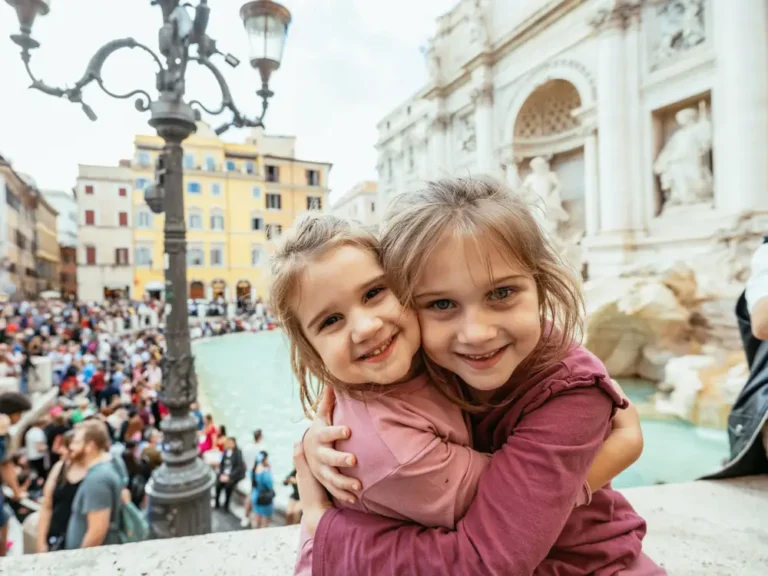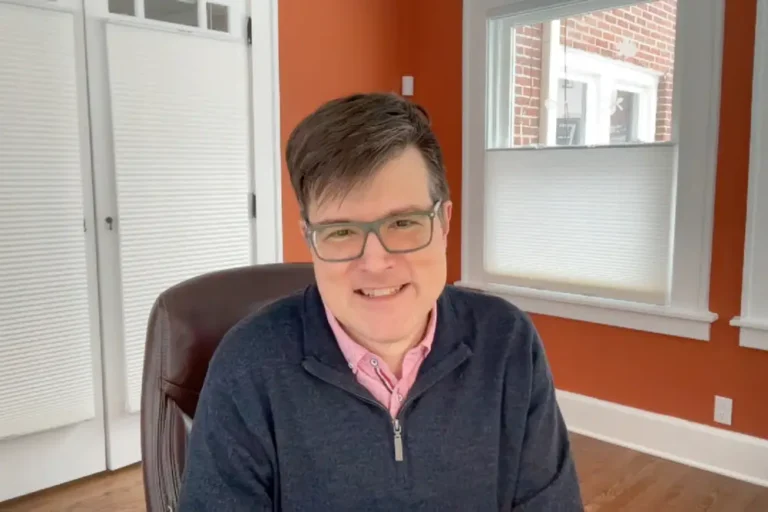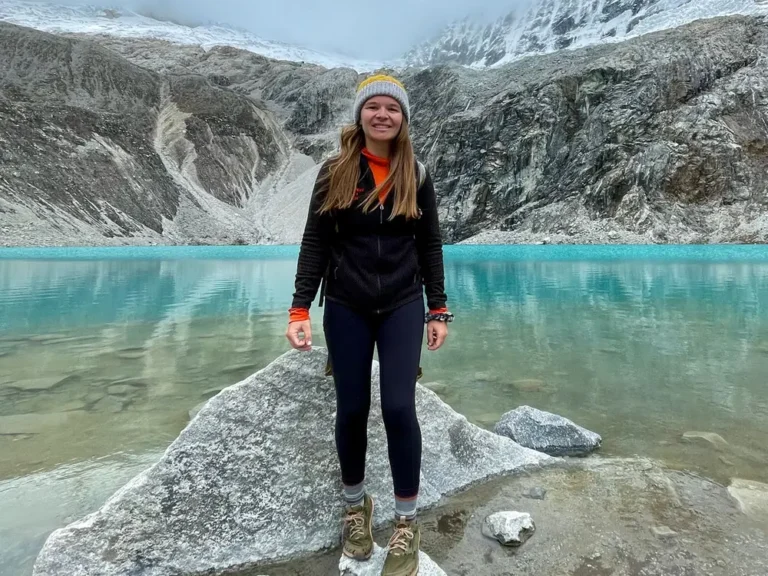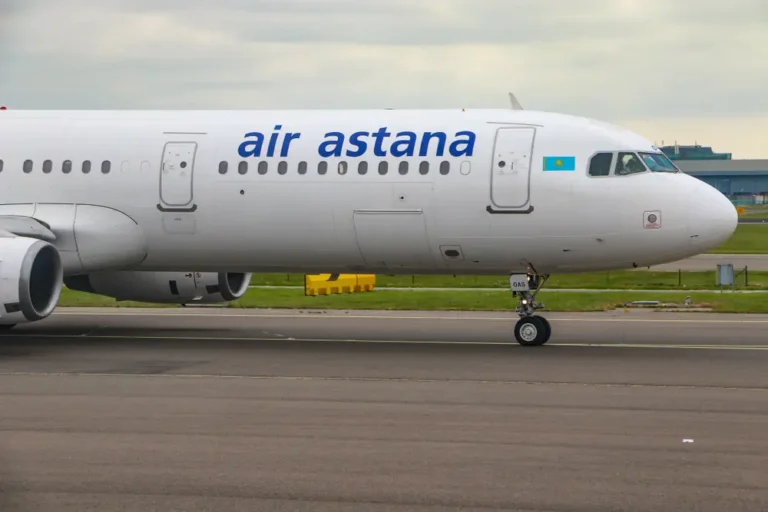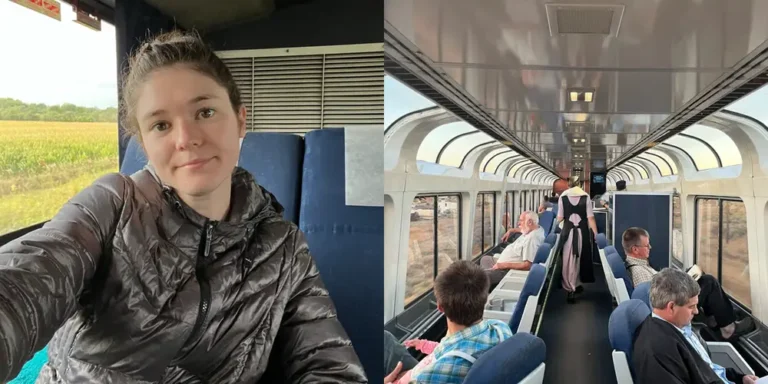I spent a week ‘bikepacking’ over 330 miles from Pittsburgh to DC. The solo journey was challenging, but I’d absolutely do it again.
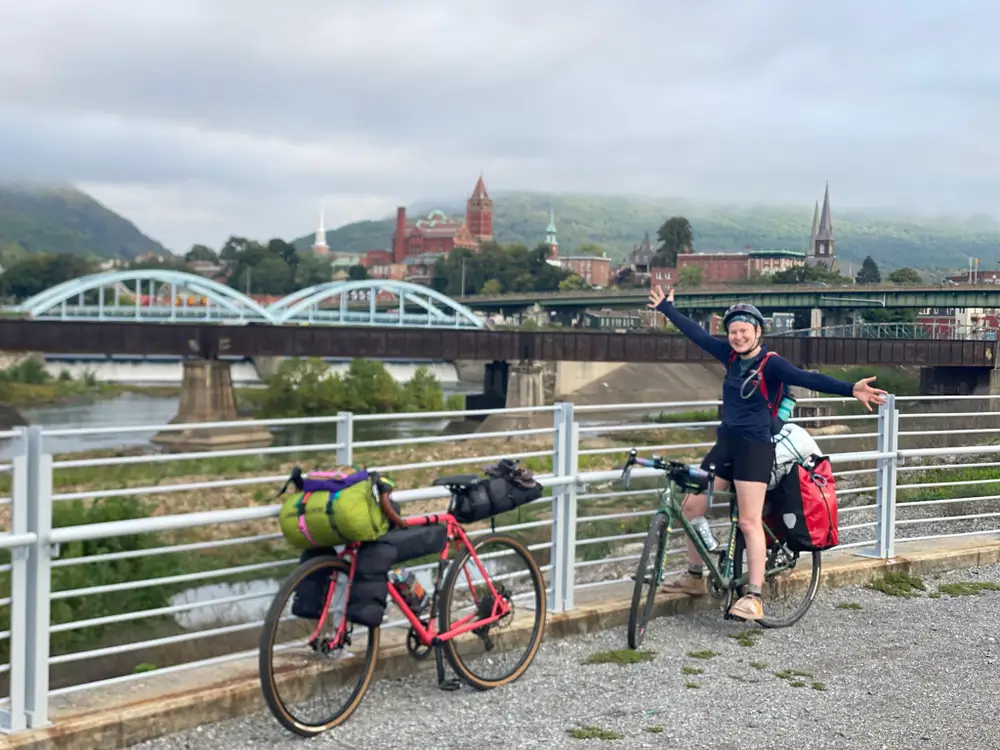
I stopped for photos while embarking on the second leg of my journey in Cumberland, Maryland
When I set out to ride my bike from Pittsburgh to Washington, DC, I wasn’t quite sure what to expect.
I bought a guidebook, joined a Facebook group, and connected with numerous cyclists who had done the ride, but nothing could prepare me for what it would feel like to bike roughly 50 miles a day for an entire week.
“Bikepacking” — riding a bicycle carrying clothing, food, water, and camping gear and finding places to sleep outside along the journey — is not an easy endeavor.
Attempting to fit a week’s supply of necessities onto the back rack of my aluminum gravel bike was a balancing act. If I put too much weight on either side, it would fall over.
When I presented my plan to friends and family, many thought I was nuts. They asked what I’d think about while spending hours alone on my bike. Some asked me to share my location with them so they’d know I was alive.
But biking has always been a meditative experience for me, so I wasn’t worried about the prospect of doing it by myself.
This ride was no different: I found myself alone with my thoughts for hours at a time, focused on the natural beauty I was biking through. I was pretty intentional about not listening to music or podcasts as I pedaled — my focus was on the journey itself, and I didn’t want distractions.
Without the external noise, I could focus on logistical considerations, such as where to stop for lunch or how many miles to the next town.
But more importantly, I was able to take in the colorful foliage, breathe in the fresh autumn air, and feel gratitude for a life that allowed me to embark on this incredible experience.
My journey began with a rough (and wet) start
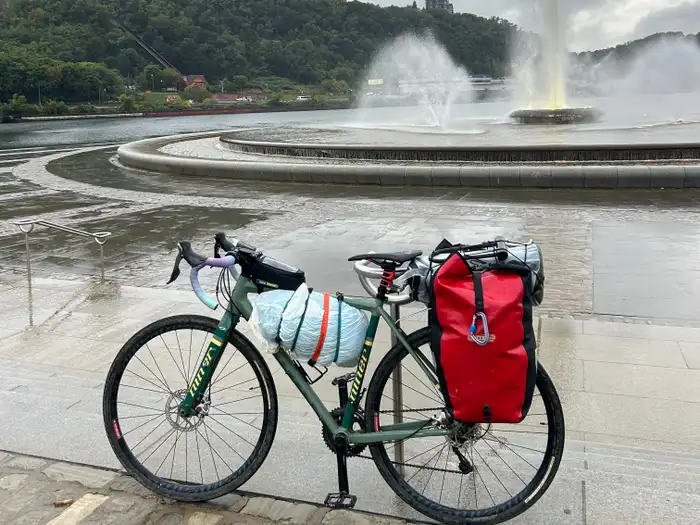
My bike and all my belongings in front of the iconic fountain at Point State Park.
The 333.3-mile route spans two major bike paths: the Great Allegheny Passage (GAP) and the Chesapeake and Ohio (C&O) Canal Towpath.
It follows the remains of the Baltimore and Ohio Railroad, Pittsburgh and Lake Erie Railroad, Union Railroad, and Western Maryland Railway — and passes through landmarks like the Mason-Dixon Line and the Eastern Continental Divide.
I felt like my bike was a time machine, and I was getting a glimpse of America’s past.
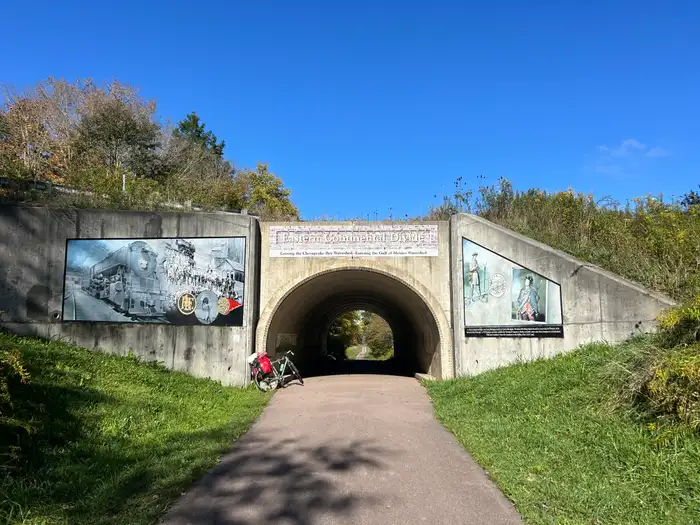
The Eastern Continental Divide, which divides parts of the US.
I began my journey at Point State Park, an idyllic area in the heart of downtown Pittsburgh overlooking the Monongahela and Allegheny rivers.
Misty morning skies quickly turned to heavy rain showers, and I was soaking wet roughly a mile into my trip. My shoes felt like tiny bathtubs as my socks soaked up the excess rain.
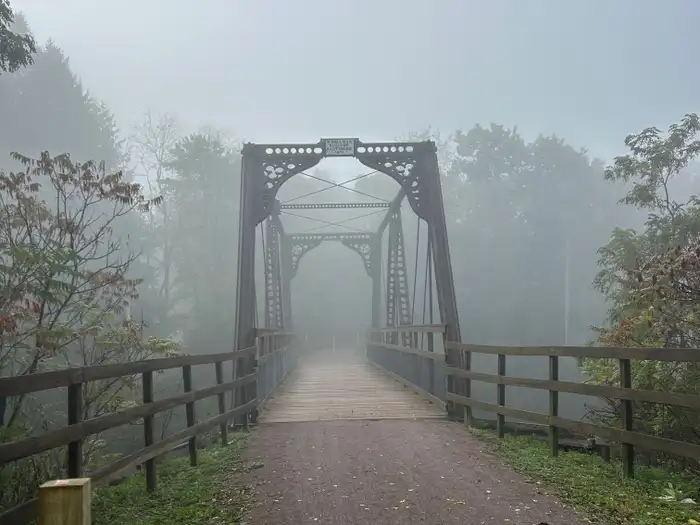
A foggy morning on the GAP after the rain.
As I pedaled, I imagined my friends and colleagues who spent their vacations traveling to sophisticated European cities and breathtaking international beaches.
Here I was, wet and miserable in the middle of rural Pennsylvania with miles more to bike until I reached my destination.
“What am I doing?” I asked myself.
Luckily, the weather gradually improved after that first day on the trail. By the third night, the rain had disappeared.
I quickly learned there are many different ways to tackle this experience
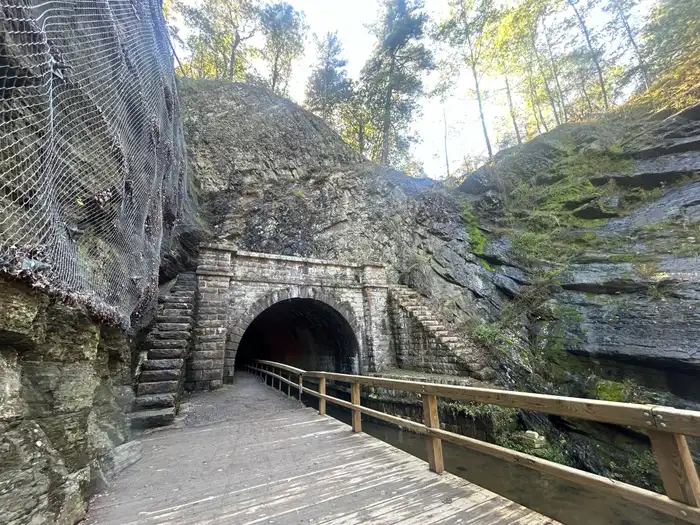
The Paw Paw Tunnel, a canal tunnel along the C&O Canal Towpath, was so dark and narrow that I had to walk my bike through it.
Although I embraced my alone time on the trail, one of the coolest aspects of the ride was how many kind strangers I met. I quickly realized there’s no one type of person who cycles the GAP or the C&O, nor is there a right way to do it.
Along the way, I met a friendly middle-aged couple from Alabama who took my photo at the Mason-Dixon Line and an older man from Texas who told me he’d cycled the trail in sections over 35 times.
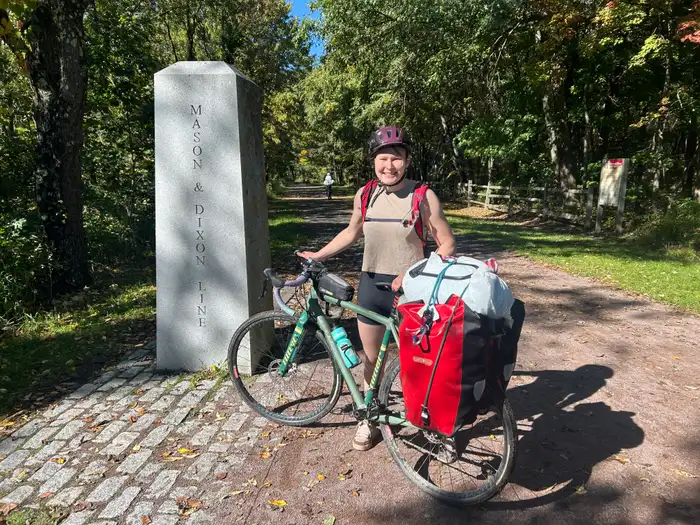
The GAP passes through the Mason-Dixon Line between Pennsylvania and Maryland.
I met cyclists who were riding on e-bikes to make the inclines more bearable. Some were staying at hostels and bed-and-breakfasts along the way or paying for shuttles to transport their belongings from one location to the next.
I also encountered cyclists who weren’t putting in a ton of daily miles, instead spending hours at a time stopping in the many historic towns and museums along the trail. Others were pedaling much faster than me, only making stops to eat and sleep.
Bikepacking gave me the freedom to change my plans
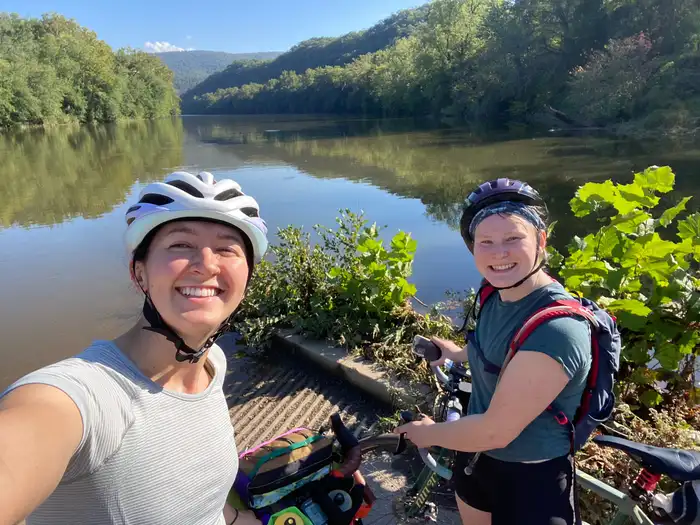
I stopped for a quick photo opp with a friend in Little Orleans, Maryland
I was certainly doing this the hard way — camping most nights and carrying all my gear on my bike was not a simple undertaking.
But choosing to bikepack gave me the freedom to veer away from the route when it felt right and switch gears from the itinerary I had planned.
It also meant that I could be flexible if I wanted to bike a bit more or less on a given day.
At one point, a friend joined me to bike part of the trail and convinced me to go on a 7-mile uphill detour off-trail to a farm brewery in Maryland.
When we finally made it up that monstrous hill, we were rewarded with live music, stunning sunset views, and delicious beer and pizza.
As it turned out, the brewery offered campsites on its property for a small fee. We ended up camping there that night, a change of plans that was only possible because we had our belongings on the back of our bikes.
I gained a new perspective on so many places and lifestyles
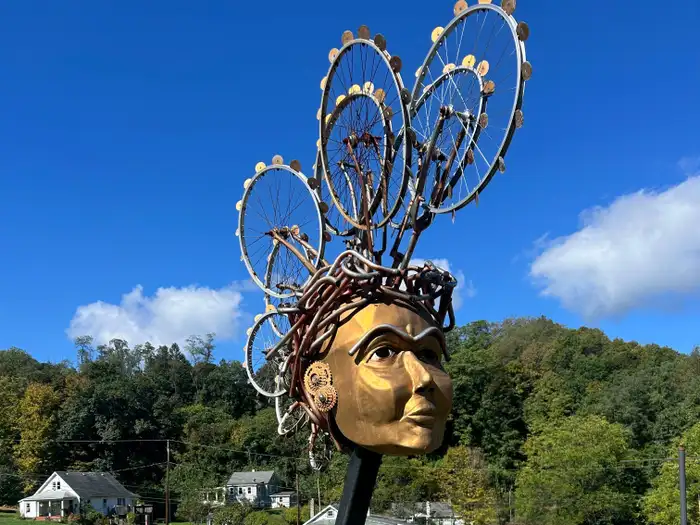
A unique bicycle-inspired sculpture welcomed visitors to Frostburg, Maryland, from the trail.
As someone who has bounced around from one major city to another since graduating from college, I’ve become accustomed to restaurants that are always open and public transportation that’s always running.
The small towns I visited along my ride operated a bit differently.
I’m not sure I would’ve ever gotten the opportunity to visit the charming borough of Meyersdale, Pennsylvania (home of the annual Pennsylvania Maple Festival) or the breathtaking mountain town of Frostburg, Maryland, if it weren’t for this journey.
But visiting these communities — and chatting with the residents and business owners who live and work there — was the highlight of my trip.
About halfway through my ride, I met a lovely woman who was born and raised in Meyersdale. She found what she referred to as “the perfect maple leaf” and gifted it to me as a souvenir.
Getting to know the communities and learning as much as I could about each town I visited gave me the energy I needed to keep pedaling.

